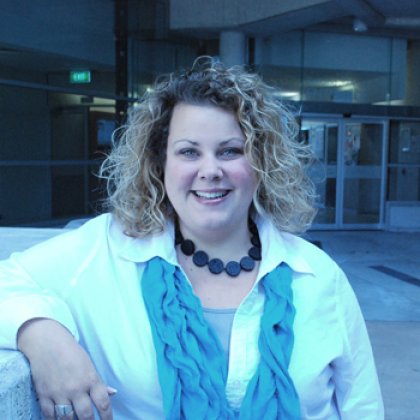
The heavily debated issue of individual versus collective responsibility in social welfare policy was the theme of a book launch at the UQ Art Museum today.
The book, Transforming the Dutch Welfare State by UQ researcher Dr Mara Yerkes was launched by leading welfare policy expert Professor Sheila Shaver.
Dr Yerkes is a senior research fellow at the University’s Institute for Social Science Research.
She said the lessons of the social welfare policies in the Netherlands were relevant for policy makers worldwide as each country struggled to spread the welfare dollar as effectively as possible.
“In the 1990s the Dutch welfare state was viewed by outsiders as being exceptional for having low unemployment, high job growth and an overall strong economic performance," she said.
"Just a decade before, the Netherlands was struggling with a sluggish economy, high unemployment, and escalating expenditures on welfare state policies.”
In the early 1990s international commentators referred to the Dutch welfare state as ‘The Dutch Miracle’.
However, according to Dr Yerkes in the mid-1990s there was a shift in the economy due to the increased participation of women in the workforce and increased labour market “flexibilisation”.
“These changes affect the risks individuals and families face in contemporary society," Dr Yerkes said.
"My book focuses on how welfare state policy in the Netherlands has responded to these changes since the mid-1990s and the policies created to protect individuals against these social risks.”
Social risks include things like sickness, disability, unemployment but also insufficient education or training, or the need to care for children or family members, Dr Yerkes said.
“Social risks are risks that individuals encounter throughout their lifetime, risks that are not always the result of individual choice, that can make it difficult and in some cases impossible to maintain a minimum level of subsistence for them or their family.
“Social risks can happen to anyone throughout their lifetime.
"From a societal standpoint, understanding social risks is important because while social risks can happen to anyone, certain people are more likely to be affected, which creates social inequality."
According to Dr Yerkes, after a five-year study of the Dutch welfare state culminating in her book, the right policy mix can reduce inequality.
Despite a transformation in many Dutch welfare state policies, the current policy mix, while effective at protecting against social risks, could lead to increased inequality in the long run.
“If the Dutch government continues to make policies increasingly selective and conditional, and aimed at smaller groups of people, this exacerbates the divide between the haves and the have-nots and puts many people at an increased risk of poverty,” she said.



